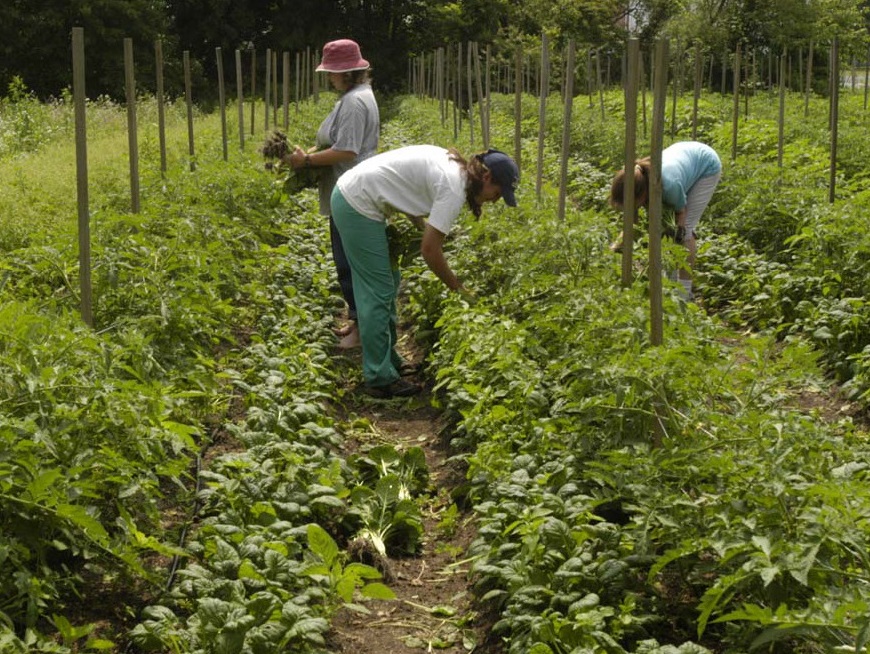Opening the Advantages of Horticulture: A Detailed Take A Look At the Various Kinds and Their Effect On Health
Checking out the complex advantages of horticulture reveals a spectrum of methods that significantly improve private wellness. As we take a look at these diverse horticulture methods, it becomes noticeable that their influence can resonate on individual, social, and environmental degrees, triggering a more detailed look at how these links create a cohesive story of all natural health.
Kinds of Gardening

Blossom horticulture, another popular classification, emphasizes the visual appeal of grown flowers. This type can enhance landscapes and advertise biodiversity by attracting beneficial pollinators. Herb gardening entails expanding fragrant and culinary plants, contributing both to cooking and natural remedies.
Container gardening deals adaptability, allowing people with restricted space to take part in horticulture by using pots and planters. This approach is especially popular in metropolitan setups. Raised bed gardening, on the other hand, involves creating elevated plots that enhance soil water drainage and ease of access, making it much easier for garden enthusiasts to handle their plants.
Last but not least, neighborhood gardening fosters cooperation amongst individuals in common rooms, advertising social interaction and cumulative obligation. Each type of horticulture offers distinct functions and satisfies different choices, making gardening a versatile activity that can be customized to specific demands and atmospheres.
Mental Health And Wellness Advantages
Participating in different kinds of horticulture not just yields tangible incentives such as fresh produce and beautiful blossoms but also provides significant mental health and wellness advantages. Research indicates that horticulture can be an effective device for minimizing anxiety, anxiousness, and depression. The act of tending to plants and cultivating a garden promotes a feeling of function and accomplishment, which can improve overall psychological wellness.
Furthermore, horticulture motivates mindfulness, as it requires individuals to concentrate on the existing moment, whether it be planting seeds or nurturing growth. This mindfulness technique can result in reduced rumination and improved state of mind stability. The direct exposure to all-natural settings throughout gardening has also been linked to boosted cognitive working and lowered sensations of fatigue.
Social communication plays an essential function in psychological health and wellness, and neighborhood gardening initiatives provide opportunities for individuals to attach with others, cultivating a feeling of belonging. The common experience of horticulture can cultivate relationships and assistance networks, additionally boosting psychological resilience.
Physical Health And Wellness Perks
Numerous people might not understand that horticulture also provides substantial physical wellness advantages. Taking part in horticulture activities requires a series of physical movements, including bending, lifting, digging, and planting, which jointly add to improved strength, versatility, and click here to read endurance. These activities can boost cardiovascular health and wellness by promoting a raised heart rate, therefore decreasing the threat of heart problem.
Additionally, gardening can function as a moderate-intensity workout, assisting people attain recommended physical activity levels. Studies suggest that routine involvement in gardening can burn significant calories-- roughly 200-400 calories per hour, depending upon the intensity of the jobs done. Such calorie expense is valuable find for weight management and overall metabolic wellness.
Furthermore, direct exposure to sunlight throughout gardening can facilitate the synthesis of vitamin D, which plays a vital duty in preserving bone health and supporting immune feature. Furthermore, the act of horticulture typically includes functioning with dirt, which has been linked to potential mental and physical health and wellness advantages as a result of the existence of advantageous microbes. Gardening.
Social Connections Via Gardening
The common aspects of gardening foster purposeful social connections among individuals. Area yards, particularly, function as lively hubs where people from varied histories integrated, cultivating not only plants yet additionally partnerships. These common spaces urge partnership, enabling individuals to trade understanding, skills, and resources, consequently improving their horticulture experience and cultivating a feeling of belonging.
Engagement in horticulture tasks commonly results in the development of relationships and support networks. Participants often unite for common objectives, such as growing periods, harvest celebrations, or educational workshops, which enhance interpersonal ties and create a sense of area. Such communications can alleviate feelings of seclusion and improve psychological health, as individuals find friendship and friendship in common ventures.

Environmental Impact of Horticulture
Horticulture significantly adds to ecological sustainability in multiple ways. Home yards supply crucial habitats for different species, including pollinators such as bees and butterflies, which are important for environment wellness.
:max_bytes(150000):strip_icc()/close-up-of-a-women-watering-vegetables-in-a-raised-bed-1407277094-c63fd1ff0a21406ebf17c51ac6c6f2d1.jpg)
In addition, yards play a critical role in water preservation. Tactical landscapes, including native plants and xeriscaping, decrease water usage and prevent drainage, thereby securing regional waterways from contamination.
Conclusion

In conclusion, gardening functions as a multifaceted task that enhances well-being across numerous domain names. The varied types of gardening-- consisting of veggie, flower, natural herb, container, and raised bed-- add to psychological and physical health, foster social links, and advertise ecological sustainability. By involving in gardening methods, individuals can experience better quality of life while also supporting area bonds and environmental health and wellness. Inevitably, the all natural advantages of gardening emphasize its relevance as an essential aspect in boosting overall health.